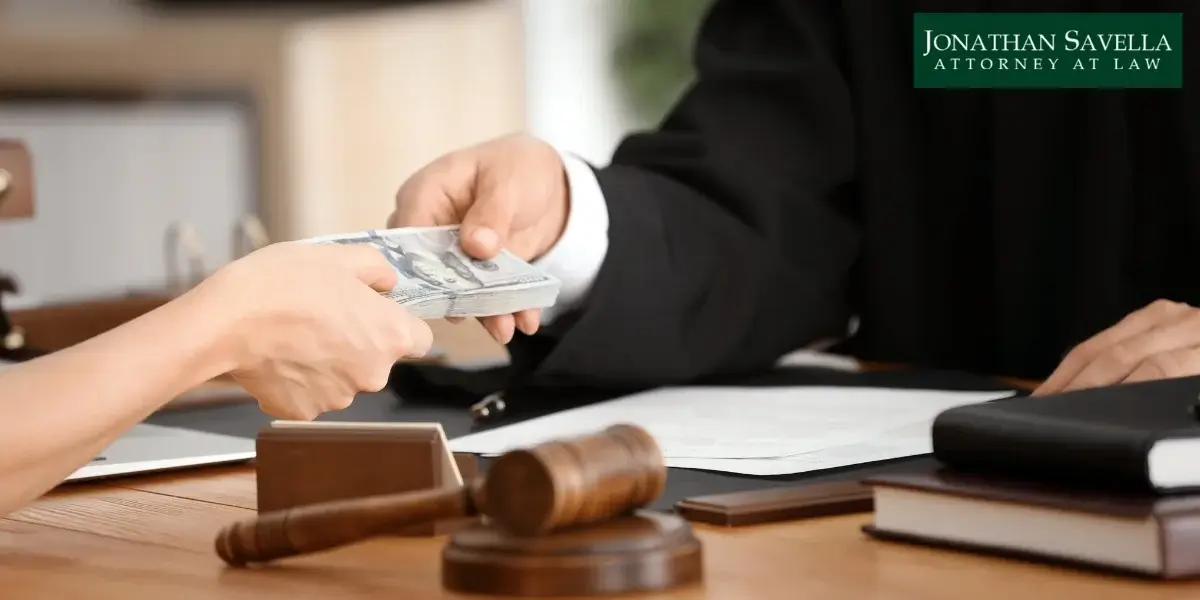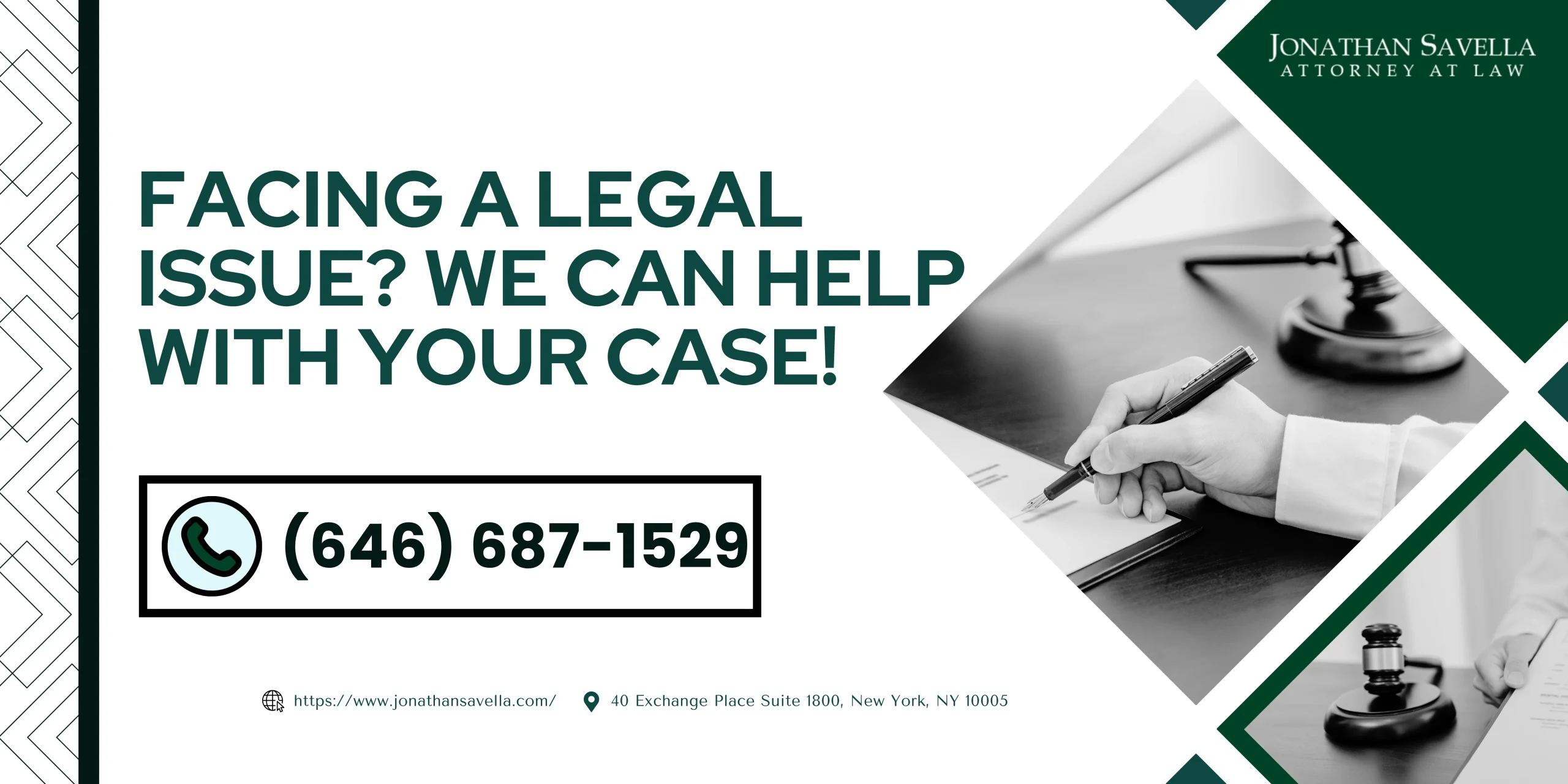Westchester Airport Cash Seizure Lawyer
Westchester Airport Cash Seizure Attorney
While carrying cash is not against the law, anyone carrying certain sums of currency may be stopped at Westchester Airport. Law enforcement agencies often seize money if they suspect it of being tied to illegal activities, even without concrete evidence. If your money is seized, a dedicated Westchester Airport cash seizure lawyer can take steps to protect your rights and defend you from accusations that you are tied to criminal activities.
Having your money seized at an airport can be both frustrating and upsetting. Navigating these situations carefully is crucial to avoid further complications or criminal charges. Whether you’re under investigation or facing charges, our lead attorney is here to represent your rights and interests. Our lead attorney, the Law Office of Jonathan Savella, understands federal laws and how to seek favorable outcomes for our clients’ cases.

Why Choose the Law Office of Jonathan Savella?
When faced with the stress and uncertainty of a cash seizure at Westchester Airport, choosing the right cash forfeiture attorney can make all the difference. At the Law Office of Jonathan Savella, we understand the complexities of asset forfeiture laws and how they intersect with federal and state regulations. Our approach is client-focused so your case receives the attention and care it deserves.
Jonathan Savella has extensive experience defending individuals against asset seizures and accusations of criminal activity. From thorough case evaluations to strategic representation, our firm provides the guidance you need to navigate these challenging situations. We prioritize your rights, your reputation, and achieving the most favorable outcome possible. Trust our commitment to protecting your future when it matters most.
Common Crimes Tied to Large Sums of Cash
Carrying large sums of cash can raise suspicion with law enforcement, especially at places like Westchester Airport. Officers may associate cash valued at more than $10,000 with illegal activities, even without concrete proof, leading to stressful and unexpected legal challenges.
Common crimes tied to cash seizures include money laundering, drug trafficking, and tax evasion. Structuring, or intentionally breaking up large amounts of cash to avoid reporting requirements, is another frequent allegation, often misunderstood by travelers.
Even innocent travelers can have their cash confiscated if authorities believe there is a potential link to criminal conduct. Understanding these risks, as well as the procedures involved, is crucial for safeguarding your rights and property. Seeking legal guidance early can minimize complications and protect your financial interests.
What to Do After Your Cash Is Seized
If your cash is seized at Westchester Airport, it’s essential to act quickly and carefully. Begin by documenting the incident, including the names of the officers involved and any details about the seizure. You may receive a receipt or notice explaining why the money was taken. Keep this document safe.
Avoid making statements that could unintentionally incriminate you, and refrain from arguing with authorities. Next, contact an experienced Westchester Airport cash seizure lawyer. A skilled attorney can evaluate the situation, guide you through the legal process, and work to recover your funds. Acting promptly can make a significant difference in your case’s outcome.
Why You Need Legal Representation
Navigating a cash seizure case without legal representation can be overwhelming and risky. Asset forfeiture laws are complex, and the burden often falls on you to prove the legitimacy of your money. An experienced lawyer can challenge the seizure, file the necessary legal motions, and build a strong case to protect your rights and assets.
An attorney understands how to negotiate with authorities and avoid further complications, such as criminal charges. At the Law Office of Jonathan Savella, we focus on providing personalized, client-focused representation to achieve favorable results for your case.
FAQs
Q: What Is Cash Seizure?
A: Asset forfeiture occurs when government authorities, such as law enforcement or customs officials, confiscate money they believe is tied to illegal activity or when travelers fail to comply with reporting requirements for large sums of cash. In the United States, carrying over $10,000 in cash or negotiable instruments must be reported to Customs and Border Protection (CBP) when entering or leaving the country.
Q: Can Customs Seize Cash?
A: Yes, customs officials have the authority to seize cash if travelers do not declare amounts exceeding the $10,000 threshold or if there is suspicion that the cash is connected to illegal activity. According to U.S. Customs and Border Protection (CBP) guidelines, travelers entering or exiting the United States must declare all currency or monetary instruments over $10,000 using Form FinCEN 105.
Q: Will TSA Seize Cash?
A: The Transportation Security Administration (TSA) does not have the authority to seize cash outright, but it may refer cases involving large sums of money to law enforcement or customs officials. If TSA agents discover a significant amount of cash during a security screening and suspect illegal activity, they can alert Customs and Border Protection (CBP) or local law enforcement.
Q: How Do I Get My Money Back From Customs?
A: If Customs seized your money, you’ll need to prove that it was legally earned and intended for legitimate use. Start by filing a Petition for Remission or Mitigation with Customs and Border Protection. Be sure to explain where the money came from and what it’s for, and include documents like bank records or contracts. If your petition is denied, you can take the case to court for review.
Schedule Your Cash Seizure Consultation Today
If law enforcement or customs seizes your money, you could be investigated for ties to criminal activity. By quickly seeking legal representation, you can avoid further misunderstandings before they escalate to criminal charges. If you are charged with a crime, a lawyer can be crucial for fighting the charges.
Our founding attorney can take steps to clear your name by scrutinizing the evidence being used against you and holding law enforcement and prosecutors to account. Don’t risk your freedom by speaking to government officials directly. Let our legal team handle your case and find a favorable resolution to the matter. Schedule your consultation by contacting our office today.



